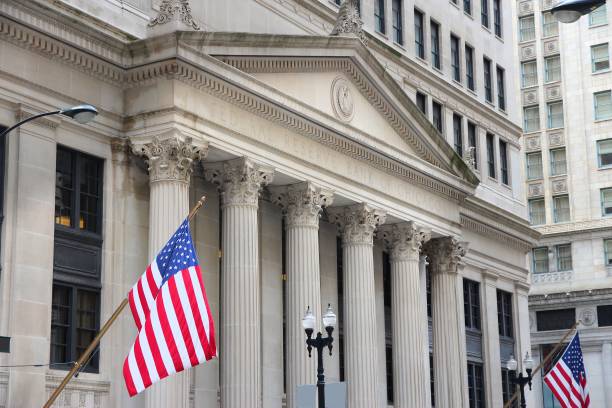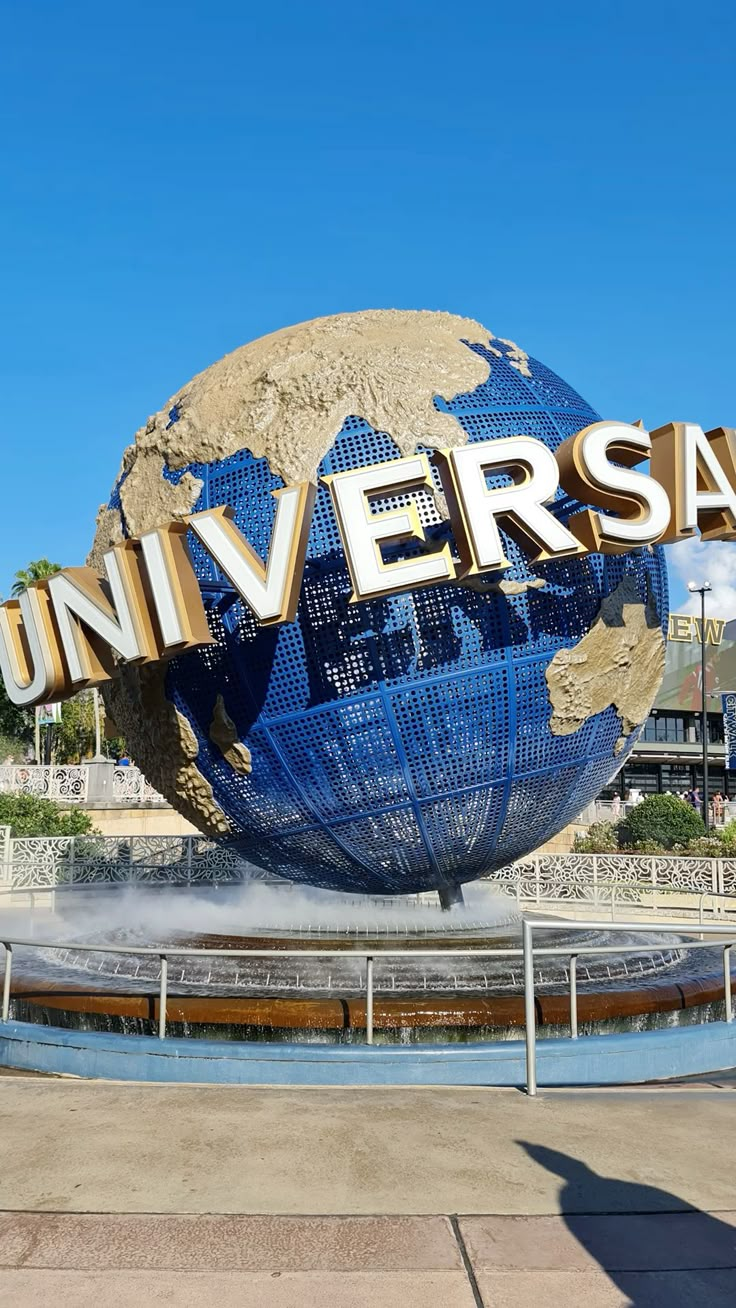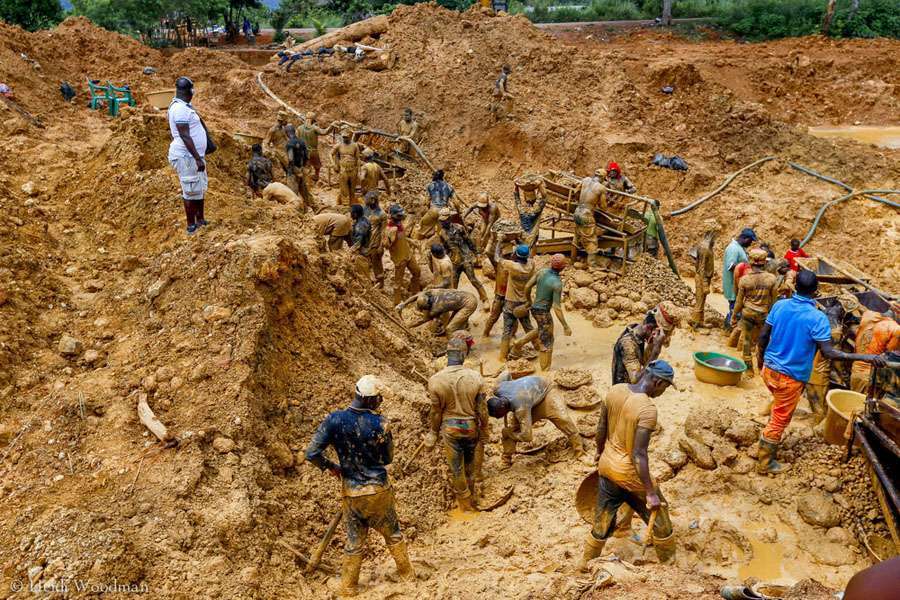
Ghana’s fight against illegal mining, popularly called galamsey, has become one of the country’s most persistent environmental crises. After years of media exposés, military operations, arrests, and political pledges, the question still remains in 2025: Has Ghana truly lost the war against galamsey?
Recent satellite data from the Environmental Protection Agency (EPA) and the Water Resources Commission show continued deforestation, polluted water bodies, and illegal mining in protected forest reserves. Even more alarming, reports indicate the return of foreign-backed galamsey operators in places like Ashanti, Western, and Eastern regions.
The Latest Developments in 2025
-
Operation Halt II Relaunches (Again)
In May 2025, the Ghana Armed Forces relaunched “Operation Halt II” after an investigative report showed new illegal mining sites near River Offin and Pra. Despite seizing dozens of excavators and arresting 85 illegal miners, many sites remain active just weeks later. -
Drone Surveillance by Minerals Commission
In a new approach, the Minerals Commission began using real-time drone mapping and AI image recognition to detect illegal pits and floating platforms. But technical limitations and lack of enforcement capacity are still major obstacles. -
Environmental Disaster in Western North
A dam breach linked to illegal mining in April 2025 led to the contamination of over 5km of farmland and left 600 residents without clean drinking water. Civil society groups, including A Rocha Ghana and Wacam, have renewed calls for criminal prosecutions, not just equipment seizures.
What Happened to the Anti-Galamsey Commitments?
Since 2017, President Akufo-Addo (and now his successor in 2025, President Bawumia) pledged to end illegal mining through:
-
Community mining schemes
-
Strict licensing
-
Military-backed operations
-
Technology-driven monitoring
However, the actual results remain mixed at best. Many experts argue that galamsey has become more decentralized and politically protected.
A 2025 IMANI Ghana report revealed that 35% of illegal mining sites were linked to influential local politicians or chiefs, making law enforcement efforts extremely complicated.
Water Crisis Worsens
The Ghana Water Company Limited (GWCL) recently warned that some areas may face water rationing by the end of the year if illegal mining continues to pollute major water sources. The rivers Offin, Pra, Ankobra, and Birim are now classified as “critical condition zones”.
This situation raises serious health concerns as thousands of Ghanaians rely on these rivers for daily use, especially in rural and peri-urban areas.
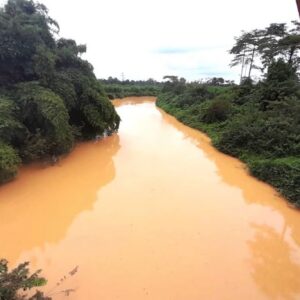
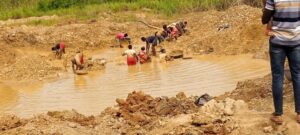
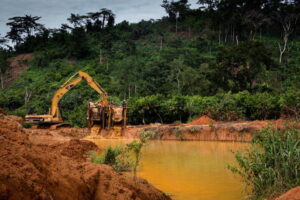
Why Galamsey Persists
-
Unemployment and Poverty:
For many youth, galamsey offers fast income in a weak job market. -
Political Interference:
Evidence suggests some politicians turn a blind eye—or benefit—from illegal operations. -
Weak Enforcement:
While military operations can disrupt illegal sites, they rarely lead to sustained prosecution or reform. -
Corruption in Licensing:
The Minerals Commission and local assemblies face allegations of selling permits “under the table”, weakening formal regulation.
What Civil Society Is Saying
Groups like OccupyGhana, GII (Ghana Integrity Initiative), and the Media Coalition Against Galamsey are calling for:
-
Real-time public data on mining licenses
-
Naming and shaming of politicians who interfere with enforcement
-
Rehabilitating damaged lands through reforestation
-
Economic alternatives in affected regions (e.g., agro-processing, sustainable farming)
Can the War Be Won?
Experts believe it’s not too late, but Ghana must shift from reactive measures to a long-term strategy, which includes:
-
Empowering district-level environmental task forces
-
Prosecuting high-level enablers
-
Offering real economic alternatives to galamsey-prone youth
-
Creating an independent Natural Resources Court to speed up cases
Until that happens, many fear Ghana may lose more than just its rivers—it could lose future generations to land degradation, poisoned water, and lawlessness.
Final Thoughts
The galamsey problem is not just an environmental issue—it’s a national emergency that affects Ghana’s economy, health, politics, and future sustainability. As 2025 progresses, Ghanaians must demand accountability at all levels—or risk watching this national tragedy deepen.

